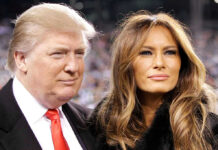
A congressional ethics complaint exposes troubling conflicts of interest and a stunning lack of transparency from a progressive lawmaker—raising alarms about double standards and the erosion of public trust.
Story Highlights
- Rep. Jasmine Crockett (D-TX) faces an ethics complaint for failing to disclose stock holdings in at least 25 companies during her 2021 congressional disclosures.
- The Foundation for Accountability and Civic Trust (FACT) alleges that these omissions violate federal law, with some stocks tied to industries impacted by Crockett’s legislative actions.
- This case underscores ongoing concerns about congressional self-dealing and the need for strict transparency and enforcement.
- The Office of Congressional Conduct (OCC) is reviewing the complaint as calls grow for stronger rules against lawmakers profiting from their positions.
Ethics Complaint Exposes Severe Disclosure Failures
Rep. Jasmine Crockett, a Democrat representing Texas, is under fire after the Foundation for Accountability and Civic Trust (FACT) filed an official ethics complaint alleging she failed to disclose ownership of stock in at least 25 companies on her 2021 congressional financial report. The allegations point to direct inconsistencies between her disclosures as a Texas legislator and those required by federal law. According to FACT, Crockett’s omissions violate the Ethics in Government Act, which mandates that members of Congress report stock holdings above $1,000 to prevent conflicts of interest and uphold public trust.
FACT’s complaint comes at a time of heightened scrutiny over lawmakers’ financial dealings, as both parties face criticism for self-serving conduct that can erode the integrity of public office. Crockett’s state-level disclosures from 2021 listed stock in 28 companies, while her federal disclosure that same year reported only three—leaving 25 holdings unreported. Some of these undisclosed stocks are in marijuana and fossil fuel companies, sectors that have seen direct legislative action by Crockett, further raising conflict of interest concerns. The Office of Congressional Conduct (OCC) is now reviewing the complaint, though no formal investigation or penalties have been announced as of early November 2025.
Conflicts of Interest and Contradictory Public Image
Watchdog groups and transparency advocates note that Crockett’s case stands out not only for the sheer number of undisclosed holdings but also for the direct overlap with her legislative work. At least two of the missing stocks reportedly exceeded the $1,000 threshold, making their omission particularly egregious under federal rules. Critics argue that such behavior undermines the credibility of progressive lawmakers who campaign on transparency and public accountability, yet fail to meet the basic standards they demand of others. The fact that Crockett’s undisclosed stocks were in companies affected by her policy efforts heightens the seriousness of the complaint and puts a spotlight on the double standards that frustrate many Americans.
FACT’s Executive Director Kendra Arnold emphasized the urgent need for investigation and strict enforcement of disclosure laws, warning that “when lawmakers hide financial interests, the public’s trust is put at risk.” Americans for Public Trust, another prominent watchdog, has echoed these concerns, pointing out the contradiction between Crockett’s public image as a reformer and her private financial dealings. Both organizations have called for a thorough inquiry and, if warranted, significant penalties—potentially including fines up to $50,000 or even imprisonment for violations of the Ethics in Government Act.
Bipartisan Demands for Accountability and Reform
While Crockett has not commented on the allegations, the case has intensified bipartisan calls to clamp down on congressional stock trading and strengthen ethics enforcement. Past scandals involving members of both parties have fueled public anger and led to proposals like the ETHICS Act (H.R.4890), which would ban lawmakers from trading individual stocks while in office. The ongoing review by the OCC could set an important precedent for how aggressively Congress will address financial conflicts in its own ranks.
Public frustration is mounting, especially among Americans who see these violations as emblematic of a broader disregard for the rules by political elites. For conservative readers, this story highlights the urgent need to restore integrity, enforce the law equally, and ensure that those who write the rules are not enriching themselves at the expense of the nation. The Trump administration’s recent successes in curbing government waste and restoring constitutional principles have set a new benchmark for transparency and accountability—values that must be upheld across the political spectrum.
The broader impact of this scandal could extend well beyond one lawmaker, as it may accelerate efforts to tighten financial disclosure laws and rebuild public trust in Congress. Voters in Crockett’s Texas district, and Americans nationwide, deserve leaders who put the public interest first and follow the rules they are sworn to uphold. As the ethics process unfolds, many will be watching to see if meaningful consequences follow—or if Washington’s double standards persist.
Sources:
Jasmine Crockett Democrat Complaint (Newsmax)
ETHICS Act, H.R.4890 (Congress.gov)

































